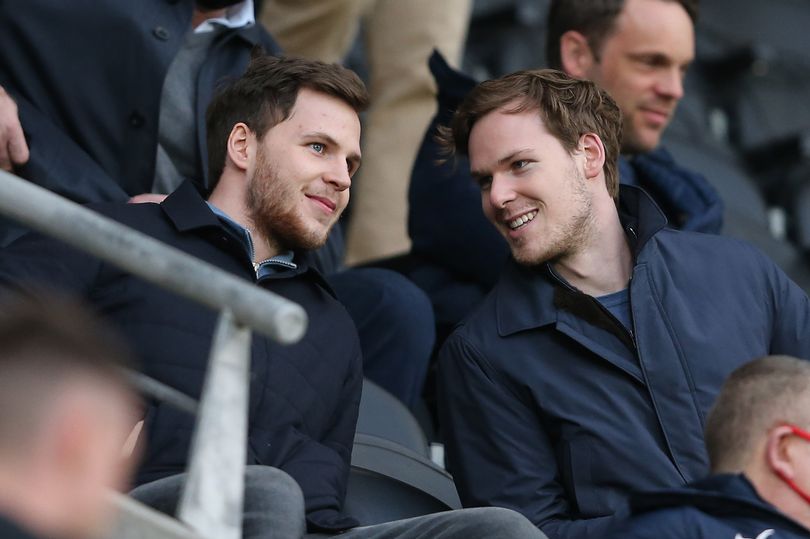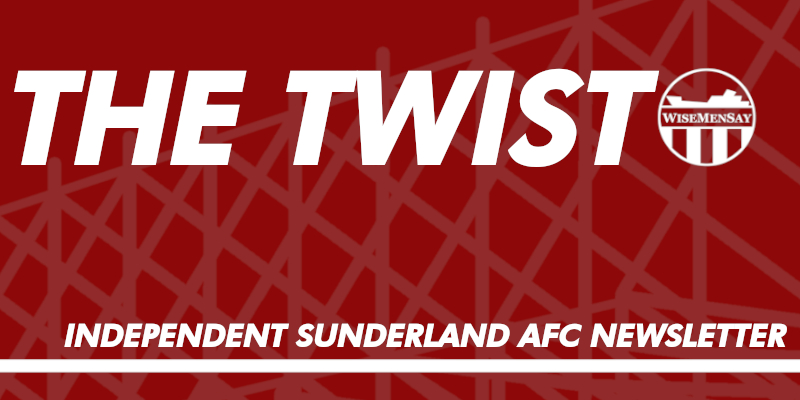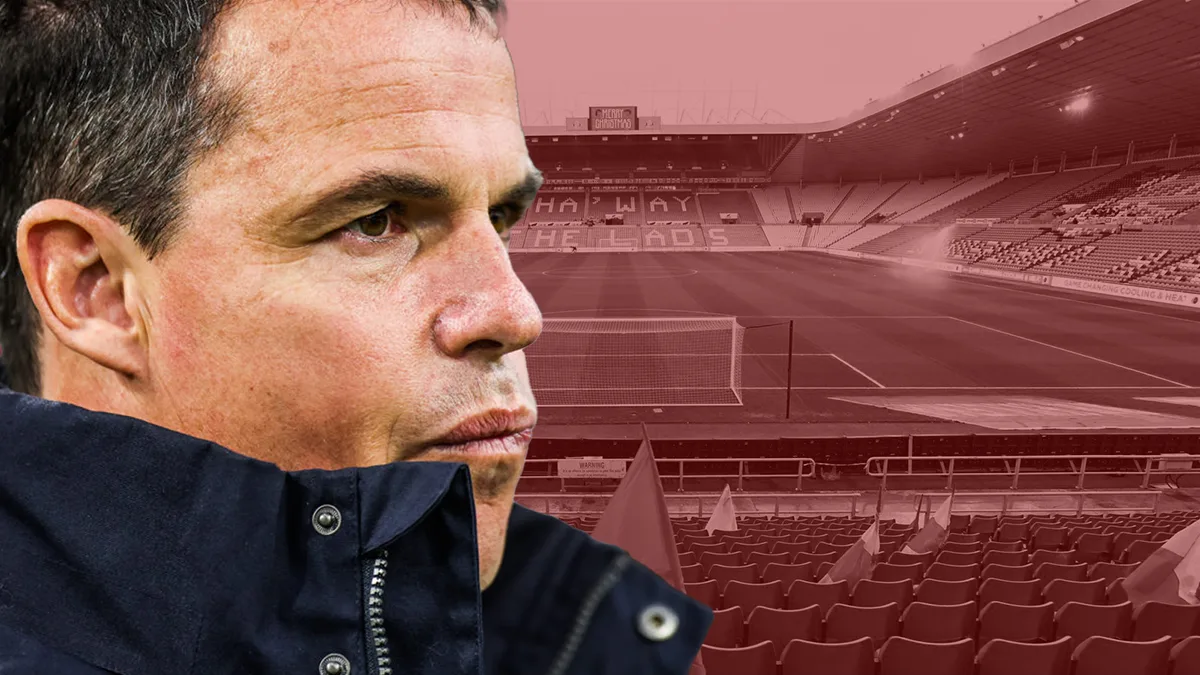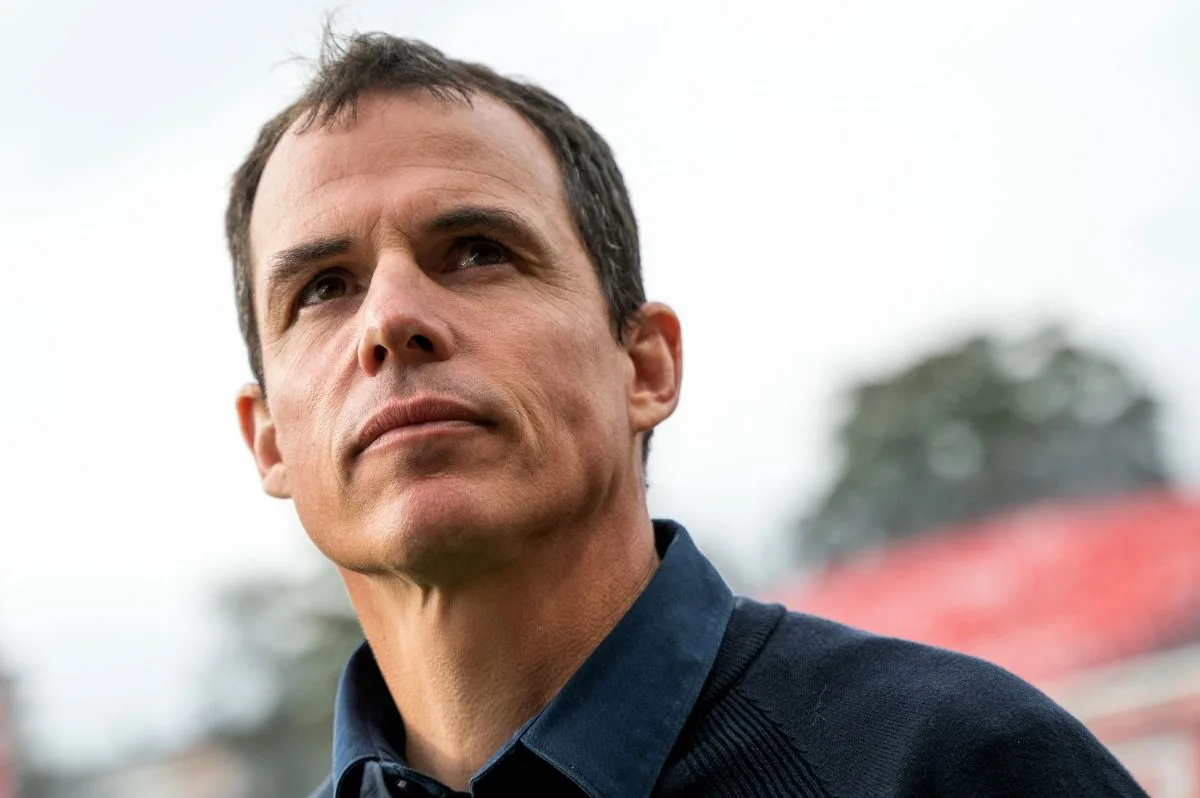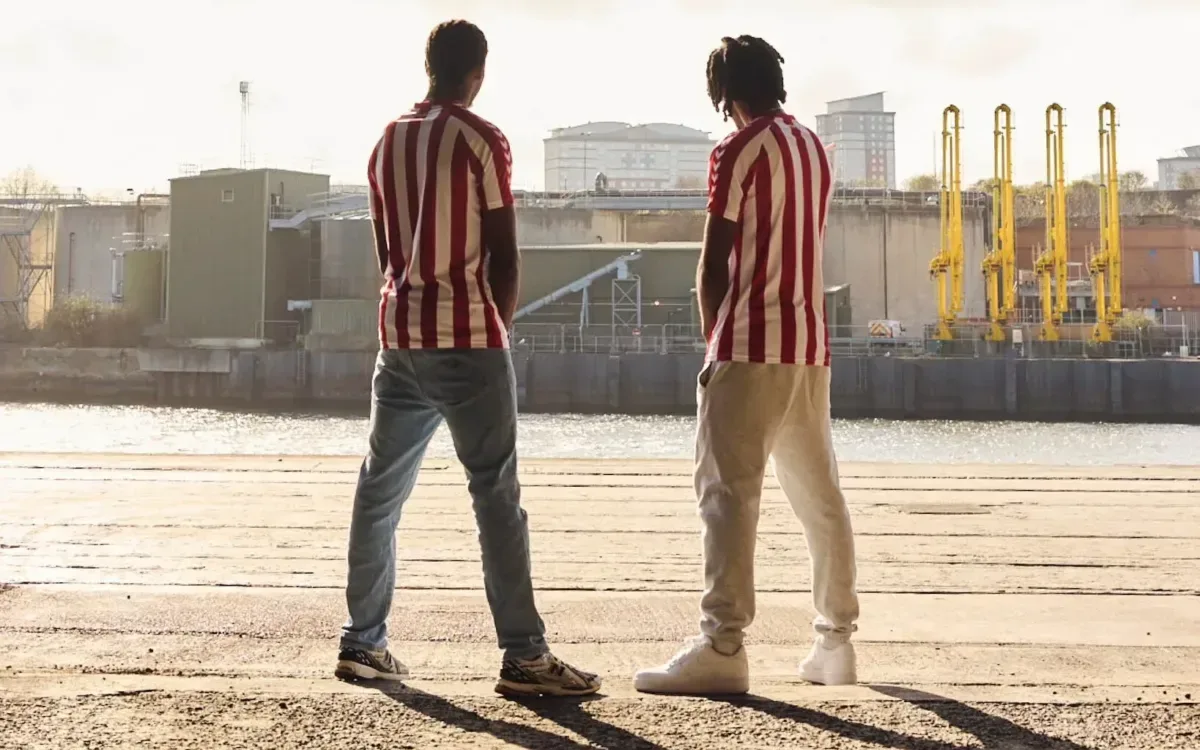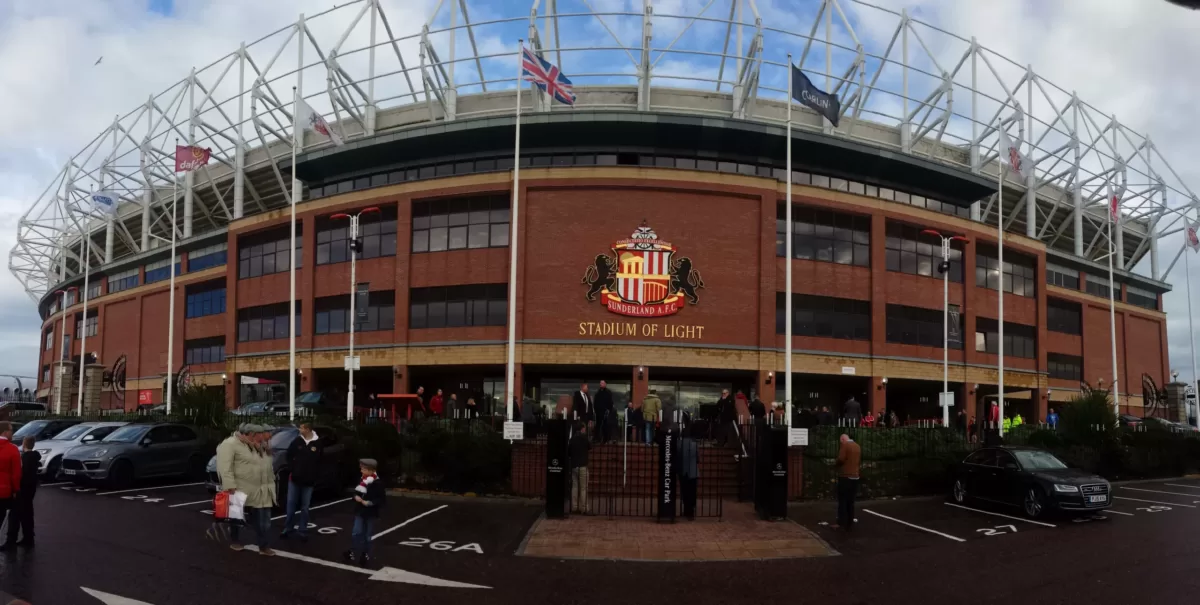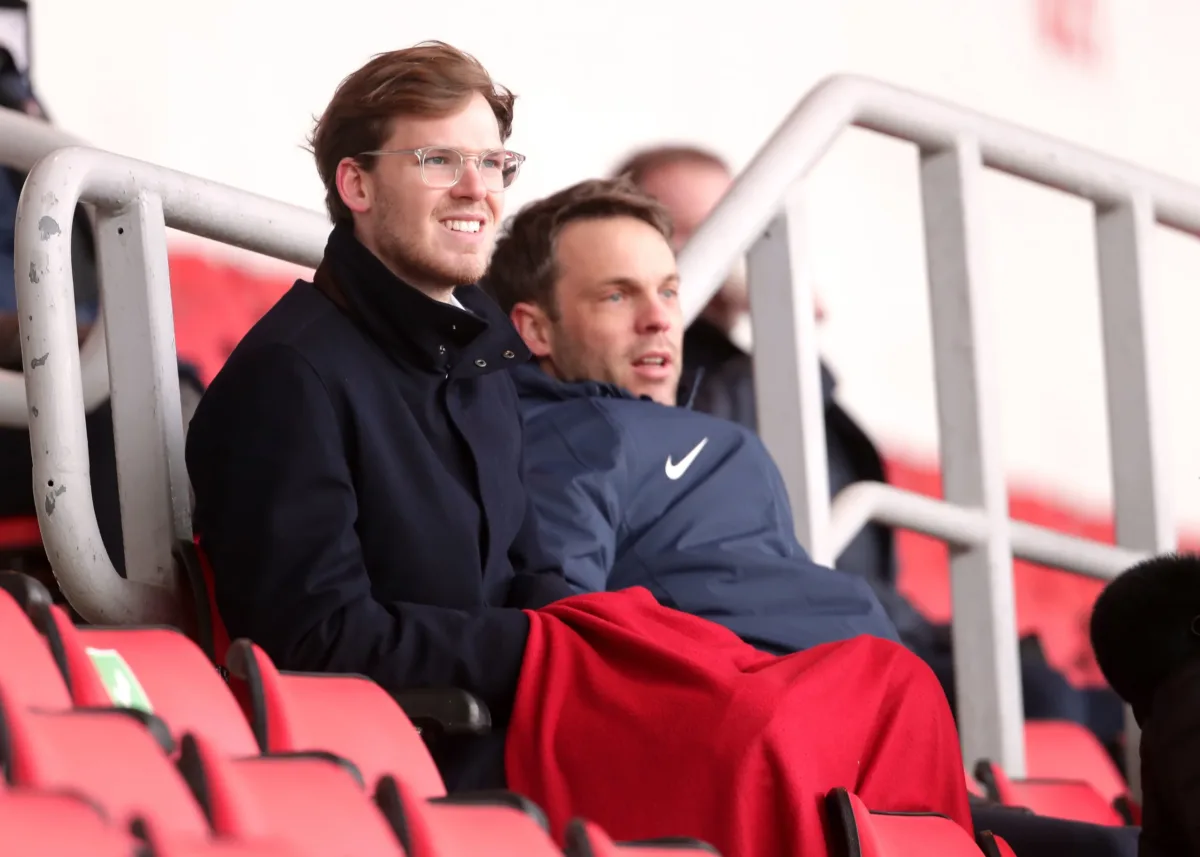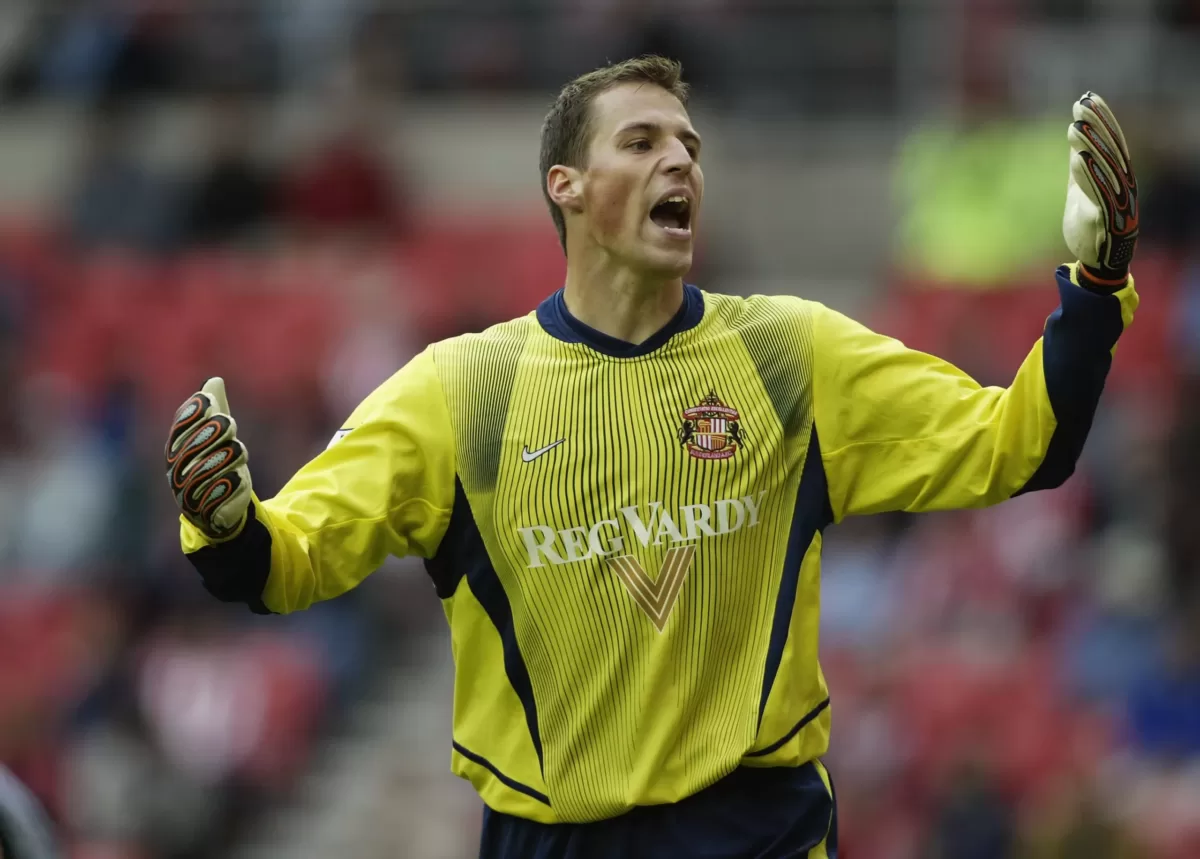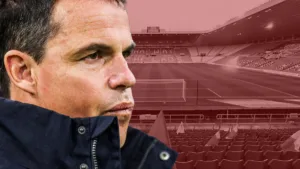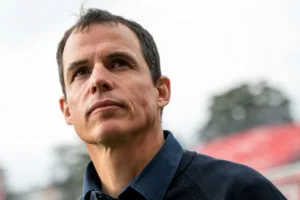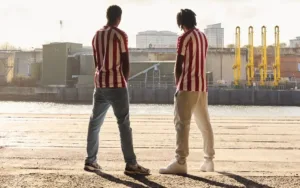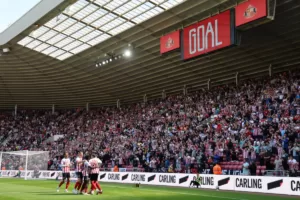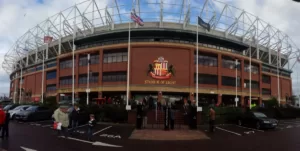On February 18th 2021, a day after Sunderland secured a return to Wembley Stadium by knocking Lincoln City out of the Papa John’s Trophy, the club confirmed it had ‘received approval from the English Football League for Kyril Louis-Dreyfus to acquire a controlling interest in the club, signalling the start of new era on Wearside.’
That statement, it is fair to say, is pretty unequivocal. Louis-Dreyfus had, in the club’s own words, acquired a ‘controlling interest’ in Sunderland AFC. We’ll not get too technical here but, suffice to say, a controlling interest is pretty much what it says on the tin. Per Investopedia: ‘A controlling interest is when a shareholder…holds a majority of a company’s voting stock, giving it significant influence over any corporate actions.’
That news was as refreshing to Sunderland fans as it was long-awaited. On Christmas Eve of last year the club had announced Louis-Dreyfus would ‘acquire Stewart Donald’s controlling interest’, subject to EFL approval, and asserted the transaction was expected to conclude in ‘mid-January’.
That date was missed, not least because of struggles getting commitments from Madrox to commit their fair share to matters once Louis-Dreyfus was in situ, but by mid-February the latter was a prominent sight at matches and many of us rejoiced at an apparent new dawn.
The problem is, over a year since Kyril Louis-Dreyfus’ name was first mentioned in conjunction with Sunderland AFC, we still have no idea how much of our football club he or anyone else actually owns.
A positive start
Within a month of the deal’s completion, season card holders past and present had received direct correspondence from the new chairman. In a letter sent out in early March, Louis-Dreyfus acknowledged ‘that the takeover process took longer than we all anticipated,’ before going on to thank fans for their patience and the warm welcome he’d received to date. It was, in many respects, a love letter to fans. It thanked supporters for their patience through the hardships of recent years and promised our support ‘should never and will never be taken for granted.’
Many, this author included, remained uneasy about the continuing presence of the Madrox trio. The deal that was eventually announced was a wide departure from that first hinted in the Guardian in mid-November 2020. Back then the mooted takeover was one which would see Louis-Dreyfus and Juan Sartori share around 80% of the club. The duo were presented as a new controlling group; what was left unspoken was that existing members of Madrox would retain c.60% of the business. What is more, one Charlie Methven was known to be actively agitating for a prominent role behind the scenes.
By Christmas Eve and then February, the deal was believed to have moved far enough away from the above to be, if not perfect, then at least palatable.
Madrox, in the guise of Donald, Methven and Sartori, would be banished from any role of real importance; their shares would comprise a pension pot and little more. Crucially, Louis-Dreyfus as an individual would be a majority shareholder, a clear (positive) change from what was originally reported.
Perhaps aware of the ill-feeling that most harboured for his now fellow shareholders, Louis-Dreyfus moved quickly in distancing himself from what had gone before. In an interview broadcast at half-time during a 2-0 victory over Fleetwood Town, Sunderland’s new chairman lamented ‘many years now where the club had no real long-term vision and cost-cutting at its forefront.’
More significantly, he referred to the activities of recent years as exactly what they were – ‘asset stripping’. Louis-Dreyfus did not name names, but it wasn’t hard to grasp his point. His honesty was refreshing and helped further allay fears that Madrox would retain influence at the club.
So too did his utterances at a virtual Supporters’ Collective meeting on March 24th. Louis-Dreyfus confirmed that while Donald, Methven and Sartori retained ‘a minority shareholding in the club and will support it as much as they can’, it was he who was now ‘the largest shareholder at the club’. Moreover, he continued: ‘I want to assure you. I have executive control of the club and the majority on the board.’
Words are easy. Actions are harder. But in the early days of Sunderland’s new era the actions followed too. Jim Rodwell was dumped from his torrid tenure as the club’s Chief Executive. Angela Lowes, Finance Director across a decade in which the club nearly fell to ruin, was removed from her post too.
Kristjaan Speakman’s arrival as Sporting Director predated the takeover but was firmly a Louis-Dreyfus hire, as too was Stuart Harvey as the club’s Head of Recruitment and Steve Davison in the new role of Chief Operating Officer. The club’s recruitment team was bulked up, so too the academy staff, and talk of a truly modern approach was rife. At the very top, Patrick Treuer and Igor Levin, two high-ranking employees at the Louis Dreyfus Company, joined the club’s board as non-executive directors.
Investment arrived not just in terms of personnel but in infrastructure too. A sizeable refit of the Academy of Light was undertaken after Sir Bob Murray, brought in from the cold after keeping a distance during the days of Ellis Short and Madrox, remarked that the building had scarcely changed since he’d built it almost two decades ago. Reports swirled that £500k was to be spent on the Stadium of Light pitch. The roof of the stadium was given a long overdue coat of paint. In general, the club buzzed with new possibilities and a break from a dilapidated past.
A shift
And then something changed. On May 6th, the club appointed four new directors to the board of The Sunderland Association Football Club Limited. Steve Davison’s role as COO saw him appointed as an executive director, while Maurice Louis-Dreyfus, brother of Kyril, joined Treuer, Levin, Dave Jones and Tom Sloanes (who has since departed) as a non-exec.
The apparent addition of yet further wealth to the club’s board stole immediate attention, but of far greater intrigue were the names of the remaining two new directors. One was Juan Sartori. Despite having been removed from the board of Sunderland Limited (the business which encompasses the club in its entirety) less than three months prior, Sartori was now appointed to the board of the football club.
He was joined by Simon Vumbaca. Vumbaca was (is?) unknown to most fans, but it took little digging to uncover him as the lawyer who helped advise on and ink Madrox’s acquisition of the club from Ellis Short. An acquisition which, ultimately, utilised huge sums of club money to enable Madrox to get their foot in the door, £20.5m of which appears never to have been paid back.
In the announcement accompanying their arrival, the club declared their appointments ‘the culmination of a detailed and thorough process’. Which seems a lot like PR guff. Fans being asked to believe that the best candidates for the role were 1) an individual who had apparently stood idly by while his colleagues had decimated the football club for the better part of three years, and 2) the lawyer who helped broker a deal that could well have helped the club out of existence had Louis-Dreyfus not shown up, was, frankly, insulting.
A more accurate representation of matters was given at another Supporters Collective meeting on May 26th. There, Davision confirmed that in reality the appointments had been made ‘to ensure the interests of all of the new ownership group are fully represented.’ Which was a fairly firm slap in the face for anyone who tried to explain away Vumbaca’s appointment as being because of his credentials in football rather than his association with Madrox.
Curiously, Davison also made mention of a ‘Mercator holding company’ at that meeting. This was the first time that name had been uttered publicly and, by my count, the only time too. It is, presumably, a company headed by Kyril Louis-Dreyfus; no further information was given and no public record of the company exists (a matter covered further, below).
Louis-Dreyfus was not present at that meeting, but he did choose to appear on Jim White’s TalkSport show earlier that day, addressing questions after Lee Johnson’s side had tumbled out of the play-offs four days prior. That White was the chosen interviewee, having been the same for Stewart Donald over the past three years, was of little comfort.
Nor were some of the things said. When asked about his willingness to invest in the club, Louis-Dreyfus promptly hedged. ‘Firstly,’ he said, ‘I am not the sole owner of the club. There’s an ownership group consisting of more people, it’s not just myself owning the club. But I would say that as an ownership group, everyone is committed.’
Though some may scoff at the last part given the fellow owners Louis-Dreyfus was referring to, there was nothing in here that was new. We all knew that Madrox retained a holding. But his immediate deferral to the ‘group’ line seemed a tad removed from the manner in which he had previously sought to distance himself from Donald and co. Much like appointing Sartori to the club’s board a few months after apparently linking him to asset stripping seemed a pretty significant shift.
Does it matter?
Football fans should always be aware of who owns their football club. And especially fans of a club like Sunderland, where successive owners have helped plunge us to the lowest depths in our history. Yet the secrecy surrounding the ownership would be of less importance to many if it resulted in no knock-on effects across the club.
Whether some choose to acknowledge it or not, the truth is that since the appointment of those directors in early May, there has been a marked shift from the positivity and mooted investment of Louis-Dreyfus’ first couple of months at the club. Not just in the words mentioned above, but in tangible actions too.
Take the summer transfer window. After a January in which Johnson and staff were asked to cobble together what they could, the idea was that the summer window would see the club hit the ground running early, buoyed by a new recruitment team headed by Harvey and supported by a data-led approach ran by new Head of Data and Analysis, James Young.
Yet what followed instead was a dreadfully slow summer, to the point that when Wigan Athletic arrived on Wearside to raise the curtain on the season, Sunderland owned no senior full-backs. That vaunted data-led approach resulted in the signings of Corry Evans and Alex Pritchard, two free transfers which looked to many like signings old regimes would have made.
That is not to say the summer was a failure or that the recruitment team did a poor job. Rather, they did a pretty good job in trying circumstances. In a remark that largely went under the radar, Steve Davison confirmed to supporters’ groups that the club’s budget for the season had only actually been finalised in a board meeting at the end of June. Behind the scenes, sources close to the recruitment team bemoaned a challenging budget for a big revamp, one that was the product of ‘bad historical decisions at the club’.
Other sources have suggested the slow drip of the summer resulted from issues at board level, principally over the willingness of some shareholders to match others in funding club activities. Certainly, little if anything was spent in the summer. Evans and Pritchard were frees, while five of the other seven signings are loanees.
Dennis Cirkin and Niall Huggins joined from Spurs and Leeds United, yet Cirkin’s deal includes a buy-back clause should he prove a success here, and any fee committed is believed to have been relatively low. Meanwhile Huggins was another freebie; Leeds are owed a proportion of any future fee we may achieve when selling him.
Money doesn’t need to be spent to succeed in League One, but suggestions the summer went smoothly – something even Speakman tried to project, with the continued line about waiting for the right targets – just plainly aren’t true. Even Johnson allowed the mask to slip when, after a friendly at York City, he confirmed he was having ’sleepless nights’ over the club’s transfer activity (or lack thereof). In many ways, the excitement that met the glut of signings that followed those remarks felt more like relief there was any activity at all, rather than a commentary on the quality of it.
Despite not being officially in charge in January, it is widely accepted that Louis-Dreyfus bankrolled the signings of Ross Stewart and Carl Winchester. Here again there has been a potential shift: the willingness to spend in January, when the new recruitment team was not in place, seems at odds with a ‘challenging’ budget being set for them upon their arrival.
It is not just on the pitch that actions haven’t married up to what we thought we were getting last February. The club’s approach to ticketing in the summer was shambolic, with a skeletal staff hung out to dry. Some scoffed at those dismayed by the lax approach to season tickets, but the lack of effort involved was both unprofessional and hugely removed from those letters that were sent out in March.
Complaints about ticketing remain legion, and the dramatically scaled opening times of both the ticket office and the club store are well-documented. That Academy of Light refit, though significantly progressed, remains unfinished. The club’s decision to dive back into the government furlough scheme in the summer raised questions, as too did, as the summer went on, continued suggestions the club was striving for ‘sustainability’. As I’ve documented many times over: it’s a pipe dream for this club in League One. Instead, since 2018, it has been used as a convenient cover for the ownership’s lack of money to run the club properly.
Most worrying of all, voices many hoped had been quietened upon Louis-Dreyfus’ arrival have begun to rear their heads again. Charlie Methven’s propensity for talking absolute bollocks reached new depths in October when he gave an interview to the Daily Mail in which he put himself up as having fixed Sunderland’s finances, offering advice to the imperilled Derby County and appeared to claim an involvement in Kristjaan Speakman’s hiring. Methven is an increasingly obvious presence at away games, and earlier this month was spotted on club business in Uruguay with Sartori and Harvey. All this despite supposedly having resigned as a director, and club employee, two years ago next week.
Back in December, I wrote we’d know if the likes of Methven were truly out of the picture if the endless stream of leaked information dried up. It hasn’t. Dave Jones bluntly confirmed as much in September, and it is a sad fact that some supposed fans continue to chum up to individuals who shouldn’t be given the time of day on Wearside.
A lack of clarity
All of this begs the question of whether or not things truly are as they once seemed, and as we were told. Fans were just about able to stomach the continued presence of Madrox, but any suggestion they are heavily involved or, worse still, retain a manner of control, would be beyond the pale. Their involvement can only impact our club negatively. It would also severely the dent the trust and patience the new regime have benefited from to date.
By now, official documentation lodged at Companies House should have shed clear light on matters. But, through either misdeed or mistake, it hasn’t.
On February 18th 2021, the day the takeover was finally greenlit, Sunderland Limited filed a document confirming Madrox Partners Limited had been removed as a ‘person with significant control’ (PSC) of the business. If that phrasing means nothing to you, the government have provided a handy blog that outlines what constitutes a PSC. Note that an individual need meet only one of the below requirements to qualify as a PSC.
A PSC is a person who:
- holds, directly or indirectly, more than 25% of the shares
- holds, directly or indirectly, more than 25% of the voting rights
- holds the right, directly or indirectly, to appoint or remove a majority of directors
- otherwise has the right to exercise, or actually exercises, significant influence or control over the company
- has the right to exercise, or actually exercises, significant influence or control over the activities of a trust or firm which is not a legal person, the trustees or members of which would satisfy any of the four conditions above
On the face of it, Madrox’s removal as a PSC reinforced the idea that their continued involvement with Sunderland was with a view to future profit and nothing more. Yet, a week later, Sunderland Limited filed documentation stating there is currently no person with significant control of the business.
How can that be possible? One explanation is that a company can’t be listed as a PSC (or at least shouldn’t be, as previously listing Madrox as one goes against this) because it isn’t, well, a person. Instead, any PSC of a company owning Sunderland Limited – be it Madrox, or the previously mentioned Mercator holding company – should be listed as such within that company, rather than the football club.
That would be fine if we could trace the existence of Mercator. But we can’t, presumably because it is registered abroad. There’s nothing wrong with that per se, Drumaville was registered in the Channel Islands, but it means we have no idea of who owns a business that, apparently, owns our football club. Is it just Kyril Louis-Dreyfus? Is it a split between himself and Maurice? Are others involved? A deeper reading of guidance suggests that in instances where overseas organisations are involved, a PSC at the top of that company should have been disclosed for Sunderland Limited.
It seems likely that something has been filed wrongly. Certainly, what we were told by Louis-Dreyfus himself in the spring would meet at least one of the above criteria, so for the club to state there is no person of significant control is a tad baffling.
As too is another filing made this year, one which is almost certainly wrong. All businesses have to file an annual Confirmation Statement at Companies House. In essence, a Confirmation Statement discloses the number of shares available in a company and, most importantly for us, who owns how many of them.
Given we have been told Mercator is now the holding company atop the group in which Sunderland AFC sits, it is undeniable that a change in shareholdings has happened somewhere in one of the UK-listed entities. Madrox previously owned 100% of the club. Either that shareholding has changed, in which case the Confirmation Statement in Sunderland Limited should show an update, or a portion of Madrox was sold to Mercator, in which case the update should show in Madrox. Alternatively, but far less likely, Mercator bought into the SJD Leisure Holdings entity which owns Donald’s shares in Madrox.
Yet in each of Sunderland Limited, Madrox and SJD this year, Confirmation Statements have been filed with no updates. If there has been a takeover, or even just a sale of shares somewhere in the manner we are told, that cannot possibly be correct. The strong likelihood is that an error has been made; the concern is whether or not it was an intended one.
The crux of it
Ultimately, nine months on from Kyril Louis-Dreyfus’ arrival, Sunderland fans still have no idea how much he or anyone else owns of their club. Whether that secrecy has been intended or otherwise, it is a dangerous thing at a club that has done little to deserve supporters’ trust in recent years.
The question has been put to the football club in recent weeks and, to their credit, they have confirmed the club’s aim is ‘to ensure supporters have full visibility and understanding of the ownership, the structure and how the club operates.’ An explanation of all of the above is now expected at the next Supporters’ Collective meeting, set for tomorrow night – Tuesday November 30th.
I have managed to go this entire piece (and well done if you’re still here) without mentioning what is believed to be the shareholding split at our club. It was rumoured and reported, but obviously never confirmed, as being split 59/41 between Louis-Dreyfus and Madrox. Sartori, Donald and Methven were said to own 20%, 15% and 6% respectively. For plenty, this was a collective 41% too much, but it could be stomached if their influence was nought.
The concern of recent months is that it isn’t. Worse still, there have been recent murmurings that those percentages are inaccurate, and not in a good way. Something shifted in the weeks after Kyril Louis-Dreyfus first arrived at our club. Actions and words changed; rampant positivity and energy gave way to something rather more cautious.
None of that may have anything to do with the ownership split at Sunderland AFC. The hope is that control of our club is exactly as we were told – in the hands of a young owner with fresh ideas and good intentions.
But whatever the truth is, one thing is undeniable: it is time we found out for definite.

